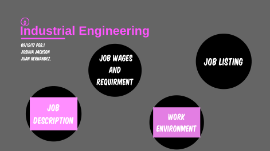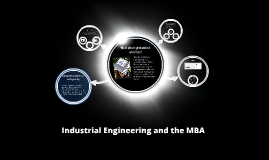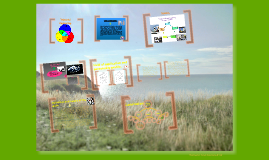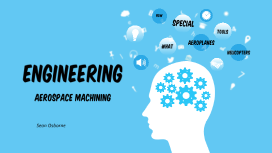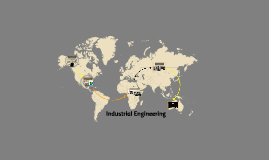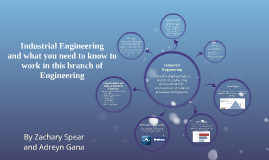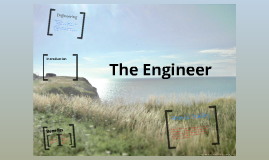Industrial engineering
Transcript: Photo based on: 'horizon' by pierreyves @ flickr Math Work Business project Industrial Engineering. Industrial engineers determine the most effective ways to use the basic factors of production—people, machines, materials, information, and energy—to make a product. They are primarily concerned with increasing productivity through the management of people, methods of business organization, and technology. To solve organizational, production, and related problems efficiently, industrial engineers carefully study the product requirements, use mathematical methods to meet those requirements, and design manufacturing and information systems. They develop management control systems to aid in financial planning and cost analysis, and design production planning and control systems to coordinate activities and ensure product quality. They also design or improve systems for the physical distribution of goods and services, as well as determining the most efficient plant locations. Industrial engineers develop wage and salary administration systems and job evaluation programs. Many industrial engineers move into management positions because the work is closely related to the work of managers. Industrial engineers must be good at solving problems. They must combine their technical knowledge with a sense of human capabilities and limitations. They should be able to organize many details into a broad view of the total operations and organization of a company. Although much of their work is done independently, industrial engineers must also be able to cooperate with other engineers, technicians, and managers. They must be able to talk with production workers and be willing to understand their concerns. Since they may present their plans in the form of written reports or oral presentations, industrial engineers must have good communication skills. the industrial engineers perform many activities that make a better company as organized and reject all possible errors Safer Companies Definition and nature of the work Helping many companies to produce more products quickly easier Knowledge Industrial engineering Science Prepared to evaluate Practice Conclusion. Personality Profile A professional profile is the set of skills (knowledge, abilities and attitudes) required in order to practice a profession within a given sphere We can divide the skills required by an Industrial Engineer into 4 categories (Ferguson, 2006): • General skills required by any manager. This would cover many cross functional skills: interpersonal communications, teamwork and leadership. But also the ability to formulate a problem, to model it and to think up solutions; to develop the creativity of colleagues; to recruit individuals, to motivate them and assess their progress; to negotiate and assess risks; to organize information flows; to understand strategy, marketing and economic concepts. • General scientific engineering knowledge. In other words, complete familiarity with the technical idiom in order to understand the complex systems referred to in the definition of an engineer. Such knowledge must also allow them to communicate with other professionals from the industrial branch forming part of a team. This knowledge would include physics, chemistry, industrial technology (Elsayed, 1999), quality management and corporate social responsibility. • The specific skills of Industrial Engineers which set them apart from other engineers. Highly developed knowledge and skills in mathematics, multivariate industrial statistics, data mining, industrial economics, continuous improvement, distribution of assembly lines, production programming, reduction of changeover times, optimization of inventories, workstation analysis, knowledge management, Six Sigma, activity-based costing, multicriteria decisions, productive maintenance, supply chain management, simulation. • Knowledge and skills specific to the sector where the graduate is ultimately employed. Almost all the above skills are connected with knowledge and abilities. They must also be combined with the attitudes sought in industrial engineers, such as continuous learning and the ability to question everything, including traditional practices. The common ground which they all share is considerable. However, they describe skills in very general terms. In fact, they all describe a profile which would be valid for any manager or engineer, and we have not found any published list of the specific skills of an Industrial Engineer offering a sufficient level of detail in order to serve as the focus for the design of the subjects which are to make up the curriculum. Therefore, we have worked on a proposal. field of application While most engineering fields are concerned with specific products, systems or processes, industrial engineering focuses on managing people, organizing businesses and optimizing the use of technology in ways that increase efficiency in a variety of workplace settings. Today's companies need






